Creating a personalized addiction recovery plan that works
Tailored Strategies for Lasting Sobriety
The Power of Personalization in Addiction Recovery
Creating an effective, personalized addiction recovery plan is essential for achieving long-term sobriety. Unlike generic treatment approaches, personalized plans consider each individual's unique circumstances, including their physical health, mental health, social environment, and personal goals. This personalized approach enhances engagement, treatment efficacy, and sustainability of recovery, making it a crucial element in overcoming addiction.
Fundamentals of Developing a Personalized Recovery Plan
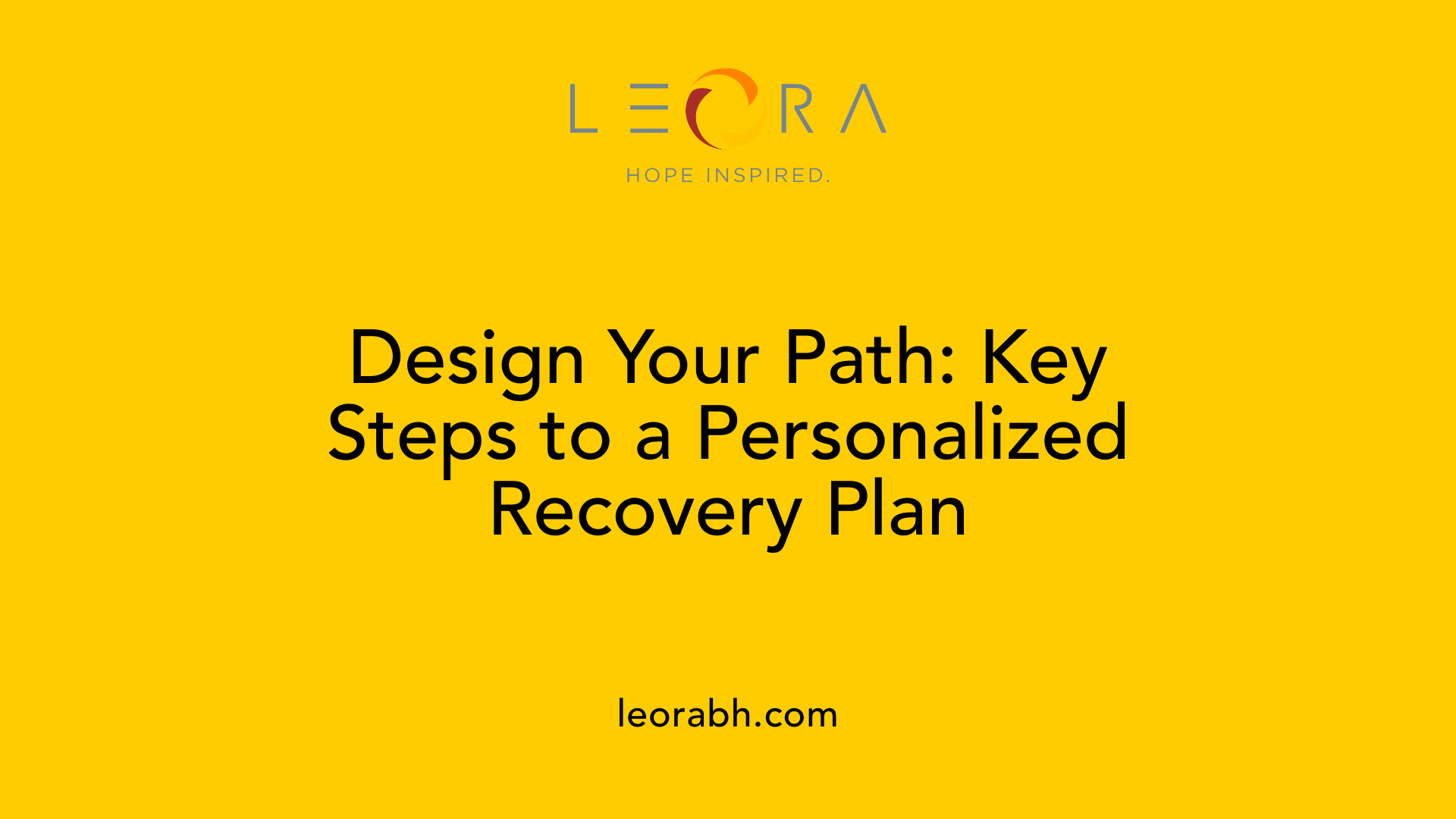
How can individuals develop a personalized addiction recovery plan?
Creating a tailored recovery plan begins with a thorough assessment of the individual's unique circumstances. This comprehensive evaluation considers physical health, mental health, history of substance use, triggers, personal strengths, and social environment. Understanding these factors helps in designing a plan that truly addresses the person's specific needs.
Collaborative goal setting is crucial. Working with healthcare professionals, individuals can establish clear, achievable objectives, such as maintaining abstinence, improving emotional regulation, or rebuilding relationships. These goals should be Specific, Measurable, Achievable, Relevant, and Time-bound (SMART). Regular check-ins with providers help track progress and motivate the individual.
Selecting the right therapies and holistic methods personalizes the treatment approach. Evidence-based therapies like cognitive-behavioral therapy (CBT), medication-assisted treatment (MAT), and motivational interviewing are often combined with holistic practices such as yoga, meditation, or acupuncture. These interventions are chosen based on the individual's preferences and specific conditions, including co-occurring mental health issues.
Support systems play a vital role in recovery. Family involvement, peer support groups, and ongoing counseling create an environment of accountability and emotional backing. Building a network of trusted individuals encourages sustained engagement with the recovery process.
Finally, continuous monitoring and flexible adjustments to the plan ensure it remains effective. Regular re-assessment of progress, setbacks, and new challenges allow for modifications that better align with the person’s evolving needs. This dynamic approach enhances the likelihood of long-term success and helps individuals navigate their recovery journey with confidence and support.
Core Components of an Effective, Individualized Recovery Plan
What are the key components of an effective, individualized recovery plan?
An effective recovery plan is tailored specifically to the individual's unique needs and circumstances. It serves as a comprehensive blueprint that guides the person through the recovery journey and addresses various aspects of their well-being.
One fundamental element is medical intervention. This includes detoxification to safely manage withdrawal symptoms and medication-assisted treatment (MAT) using drugs like buprenorphine, methadone, or naltrexone. These medications help reduce cravings and maintain sobriety, especially for opioid addiction.
Psychological therapies remain central to recovery. Evidence-based approaches like Cognitive Behavioral Therapy (CBT) help individuals change destructive thought patterns and behaviors. Motivational Interviewing (MI) fosters internal motivation, while family therapy involves loved ones to strengthen support networks and address relational issues.
Complementing medical and psychological treatments are holistic practices that enhance overall wellness. Yoga, meditation, mindfulness, and wellness routines support stress reduction, emotional regulation, and physical health, creating a balanced foundation for recovery.
To maintain long-term sobriety, relapse prevention strategies are crucial. These include developing coping mechanisms for high-risk situations, establishing ongoing support mechanisms like peer groups or ongoing therapy, and creating personalized emergency plans in case of setbacks.
A well-rounded recovery plan also incorporates support system engagement, ensuring the individual has access to ongoing community resources, family involvement, and healthcare follow-up. Regular assessment and flexibility allow the plan to adapt as the individual progresses or faces new challenges.
In summary, an individualized recovery plan combines medical treatments, psychological therapies, holistic wellness practices, and relapse prevention techniques tailored to the person's unique profile. This integrated approach promotes sustained recovery, personal growth, and resilience.
Importance of Tailored Approaches for Long-Term Success
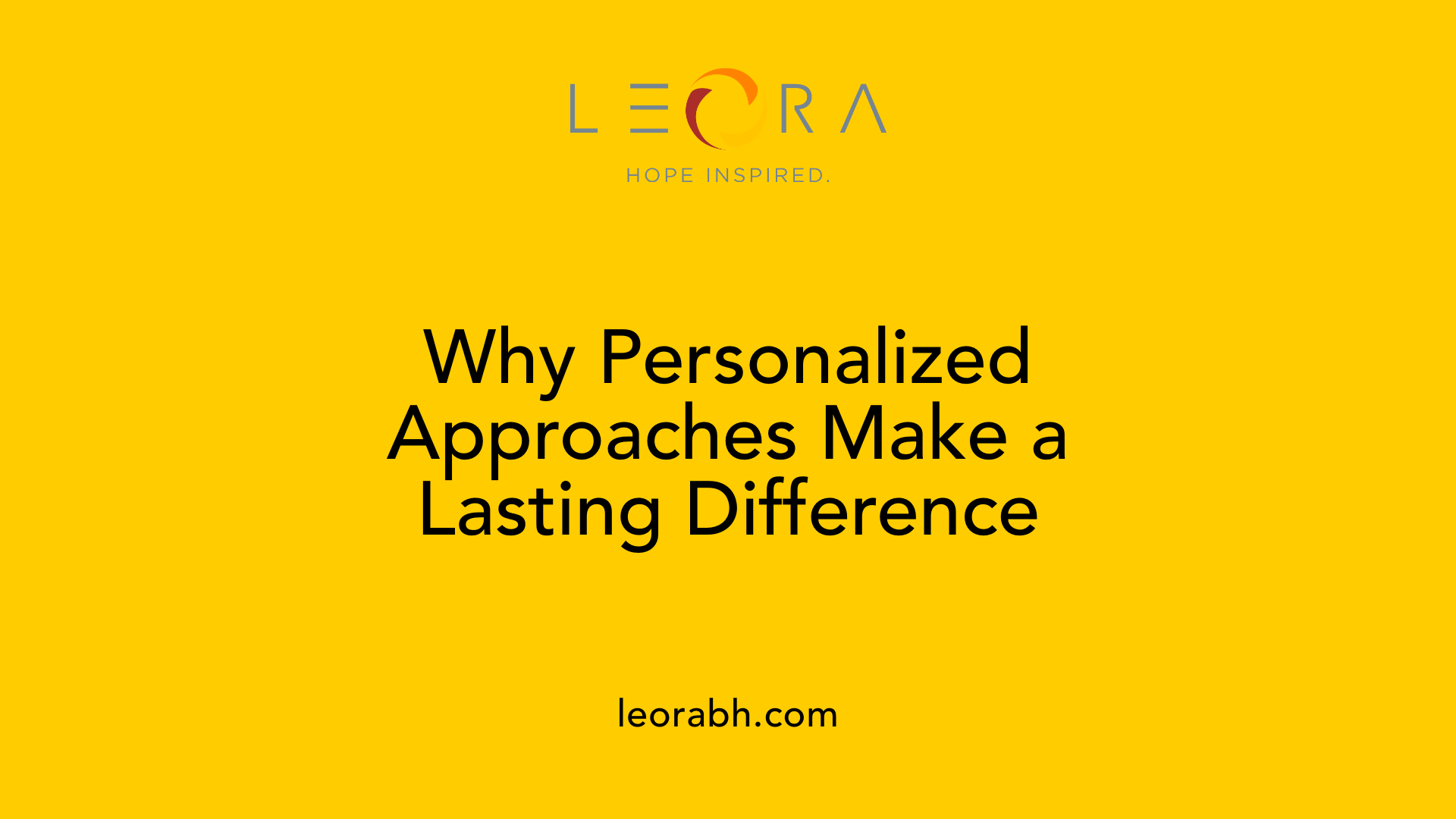
Why are tailored approaches important for long-term addiction recovery?
Personalized addiction treatment plans are crucial for ensuring successful, long-lasting recovery. Each individual’s physical health, mental state, social environment, and cultural background are unique and require specific attention. Tailoring treatment strategies recognizes these differences, making interventions more relevant and effective.
Comprehensive assessment forms the starting point. It examines the person’s substance use history, co-occurring mental health issues, family dynamics, and personal goals. This detailed understanding helps clinicians develop a customized plan that includes appropriate therapies, medications, and holistic practices such as yoga or meditation.
Flexibility is another vital aspect. As recovery progresses, individuals may face setbacks or evolving needs. Personalized plans can adapt to these changes, modifying treatment intensity, adjusting therapies, or introducing new support systems. This responsiveness ensures consistent progress and prevents disillusionment.
Engagement and motivation are higher when individuals feel understood and supported through their unique recovery journey. Family involvement, community resources, peer groups like NA or AA, and technological tools are integrated into the plan, providing ongoing encouragement.
By addressing the whole person—physically, emotionally, socially, and culturally—tailored treatment fosters emotional well-being, boosts self-confidence, and helps individuals rebuild their lives beyond addiction. In essence, personalized approaches target the core of each person’s challenges, increasing the likelihood of sustained sobriety and a healthier future.
How Personalization Enhances Recovery Outcomes
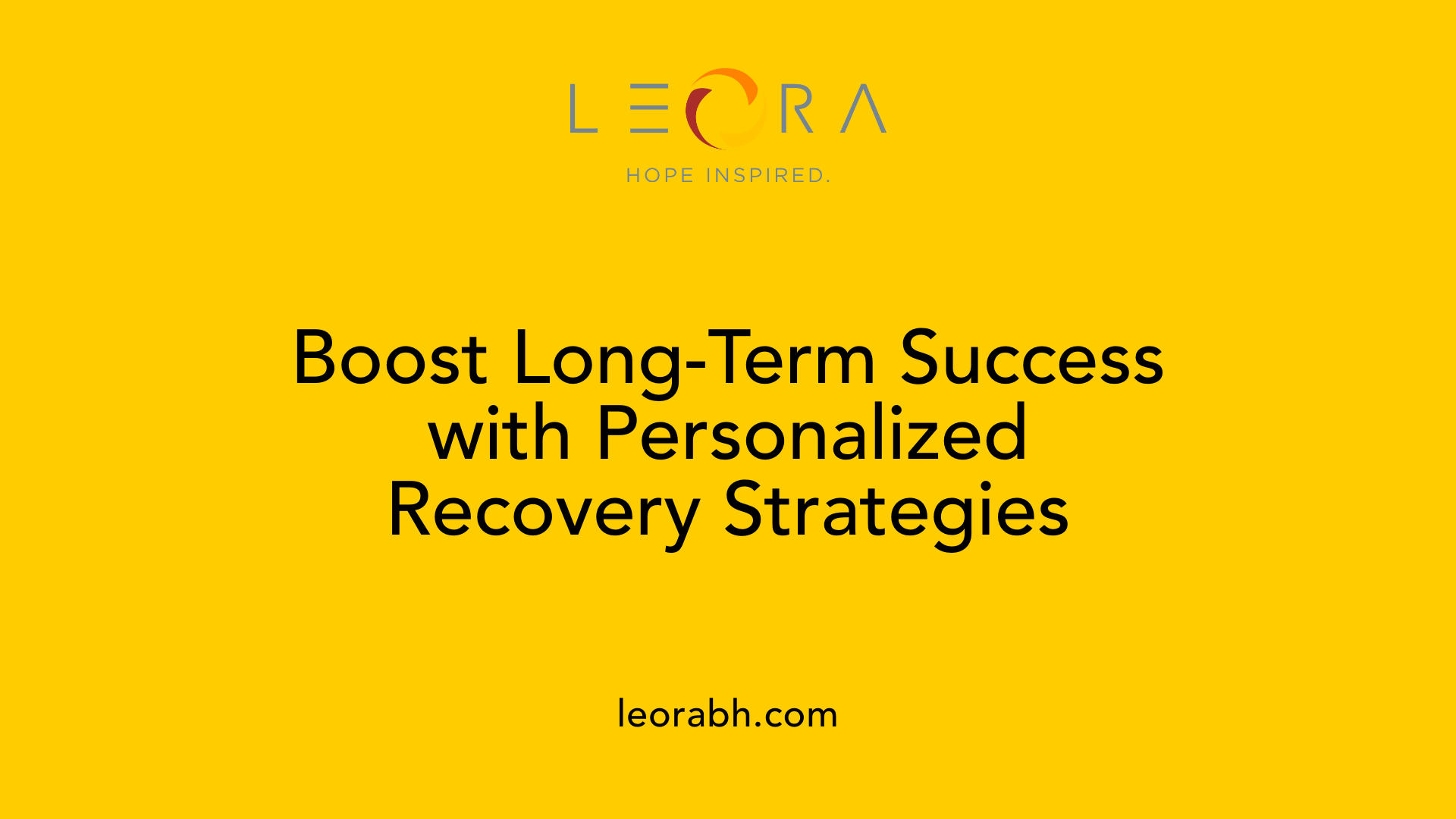
How do personalized recovery plans improve outcomes?
Personalized recovery plans significantly boost the chances of successful long-term sobriety by tailoring treatment strategies to each individual’s unique circumstances. They start with a comprehensive assessment that considers substance use history, mental health, physical health, family dynamics, and personal objectives. This tailored approach ensures that underlying issues, such as co-occurring mental health disorders or trauma, are directly addressed within the treatment process.
By incorporating evidence-based therapies like Cognitive Behavioral Therapy (CBT), Motivational Interviewing (MI), and Holistic methods such as yoga or meditation, these plans resonate with the individual's preferences and needs. When medications like buprenorphine or methadone are included appropriately, they help manage withdrawal symptoms and cravings more effectively.
Holistic therapies aligned with personal preferences not only support physical and emotional well-being but also increase engagement in treatment. This personalization fosters greater motivation, commitment, and a sense of ownership over the recovery process. Additionally, interventions are adaptable, allowing updates as the individual progresses or encounters new challenges.
Reducing relapse risk is often a primary goal of personalized plans. They incorporate specific relapse prevention strategies based on identified triggers and stressors, ensuring the individual has tailored coping mechanisms and support systems in place. Family involvement and community resources further reinforce the recovery efforts, making the approach comprehensive.
Overall, a customized plan that considers all facets of a person’s life—mental, emotional, social, and physical—creates a supportive environment for sustainable recovery. This individual-centric strategy results in higher treatment adherence, improved emotional health, and a more resilient base for lifelong sobriety.
Resources for Designing Effective, Individualized Strategies
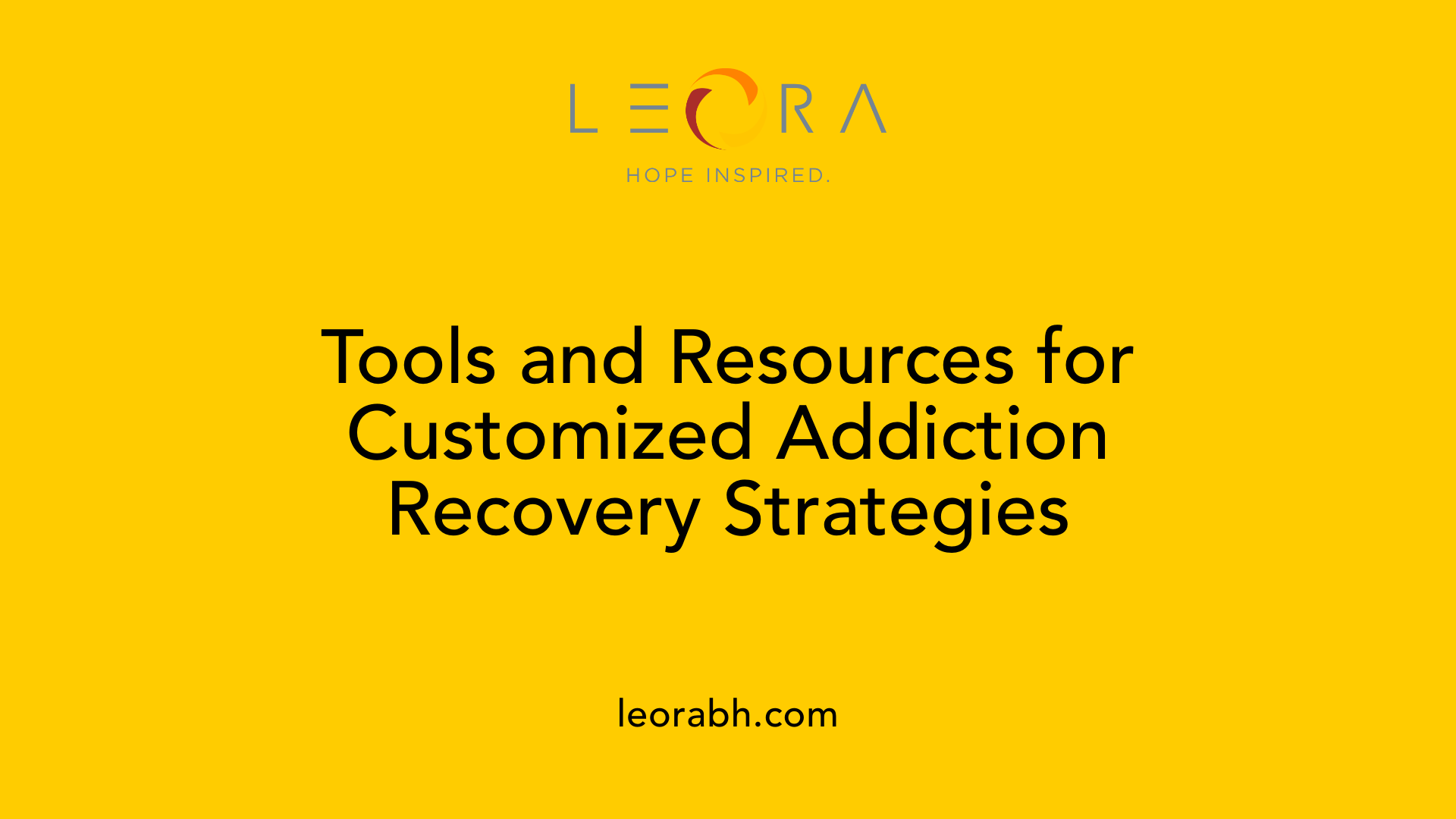
What resources are available for designing individualized treatment strategies?
Designing personalized addiction treatment plans requires a multi-faceted approach supported by various resources. Technological tools, such as advanced diagnostic software and data analysis platforms, help clinicians gather detailed information about the patient’s history, genetics, and response to previous treatments.
Clinical expertise plays a crucial role, especially through methodologies like the SMART (Sequential Multiple Assignment Randomized Trial) design. This adaptive framework allows healthcare providers to develop interventions that change based on how the individual responds over time, ensuring continuous tailoring of treatment.
Genetic and genomic insights are transforming personalized medicine. Technologies such as next-generation sequencing and pharmacogenetics enable practitioners to identify genetic predispositions, predict medication responses, and tailor pharmacological treatments like gene therapies or targeted medications. These insights help refine strategies to maximize effectiveness and reduce adverse effects.
Furthermore, comprehensive resources include educational materials on holistic recovery approaches—such as yoga, meditation, and nutritional counseling—as well as guidelines issued by regulatory bodies like the Food and Drug Administration (FDA). These guidelines ensure treatments adhere to safety standards and evidence-based practices.
Involving multidisciplinary teams—from addiction specialists and mental health professionals to disability experts—also enriches treatment design. Their combined perspectives ensure that plans are not only scientifically sound but also accessible and adaptable to specific individual circumstances.
By integrating these technological, scientific, regulatory, and professional resources, clinicians can craft flexible, effective, and deeply personalized strategies. This approach increases engagement, improves outcomes, and offers individuals the best chance for sustained recovery.
Best Practices for Creating Tailored Addiction Treatment Plans
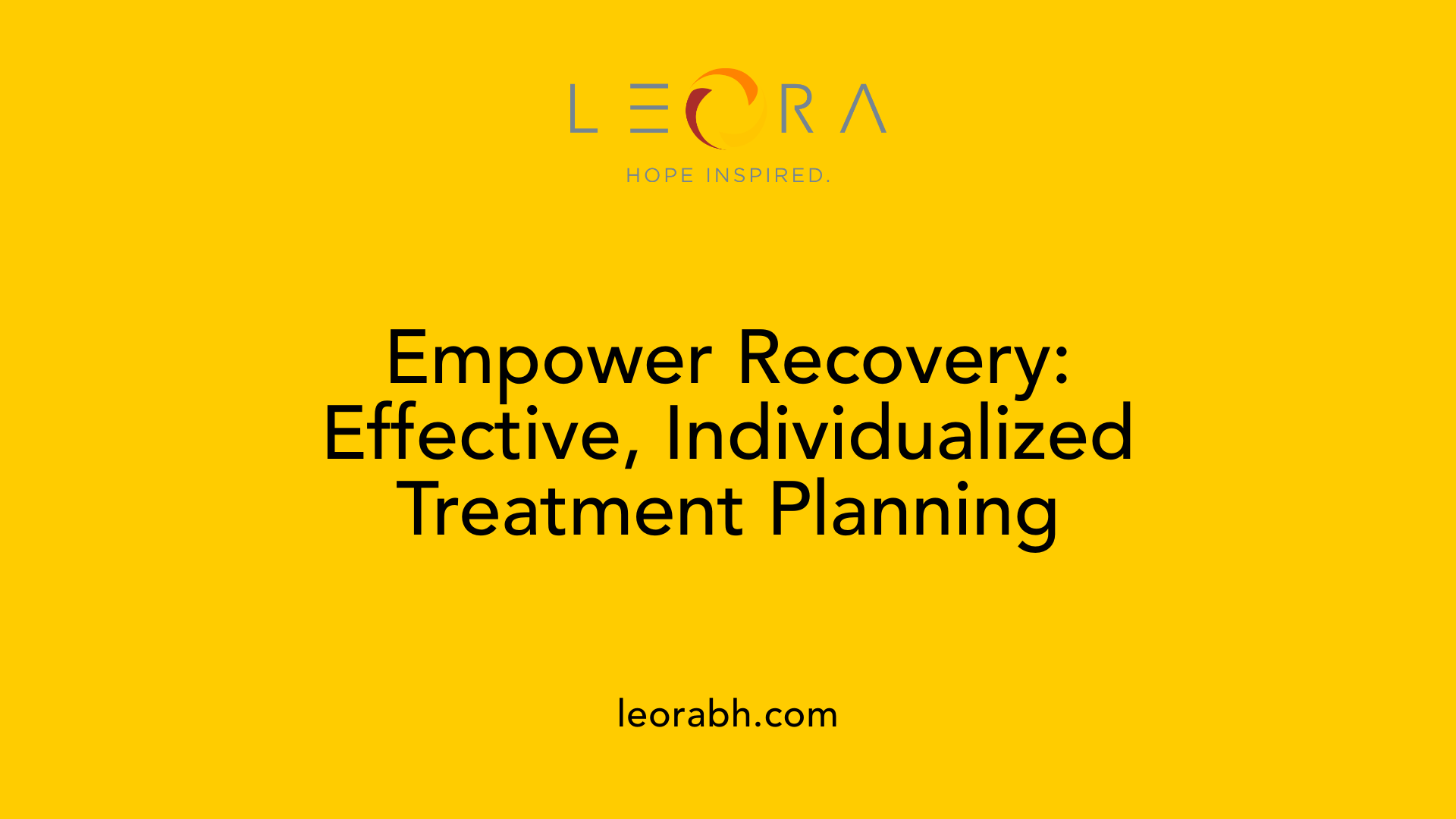
What are some best practices for creating effective, individualized addiction treatment plans?
Developing a successful personalized addiction treatment plan begins with conducting a detailed assessment of the individual's unique circumstances. This assessment should include thorough exploration of their substance use history, co-occurring mental health conditions, trauma experiences, social environment, and personal motivation for change. Gathering this comprehensive data helps clinicians identify specific needs and barriers, forming a solid foundation for a tailored treatment approach.
Engagement of the client in the planning process is crucial. By involving them actively, clinicians acknowledge their strengths, preferences, and goals, which increases motivation and commitment. Setting clear, realistic, and measurable objectives using SMART criteria (Specific, Measurable, Achievable, Relevant, and Time-bound) guides both the client and treatment team toward attainable milestones, keeping progress visible and motivating.
To ensure the plan's effectiveness, a range of evidence-based therapies should be incorporated. Modalities such as Cognitive Behavioral Therapy (CBT), Dialectical Behavior Therapy (DBT), Motivational Interviewing (MI), and family interventions can be specifically tailored to address individual issues, whether they involve cravings, emotional regulation, or relational dynamics. These interventions are flexible and can be modified as treatment progresses.
Regular evaluation and ongoing monitoring are essential components. Consistent reassessment allows the treatment plan to adapt to the client’s evolving needs, challenges, and successes. This flexibility enhances engagement, prevents stagnation, and ensures the interventions remain relevant.
Furthermore, establishing a strong focus on relapse prevention is vital. Incorporating strategies such as identifying high-risk situations, developing effective coping skills, and fostering support networks helps sustain long-term recovery. Coordinating care across multiple professionals, including healthcare providers, counselors, family members, and peer support groups, creates a comprehensive support system.
In summary, effective individualized treatment plans are characterized by thorough assessment, active client involvement, evidence-based, adaptable therapies, continuous evaluation, and integrated relapse prevention efforts. These practices foster a higher likelihood of successful recovery by aligning treatment with the person’s specific needs, preferences, and life circumstances.
| Step | Focus Area | Key Activities | Benefits |
|---|---|---|---|
| 1 | Comprehensive assessment | Gather detailed history & current status | Foundation for tailored treatment |
| 2 | Goal setting | Define SMART objectives with client | Improves motivation & clarity |
| 3 | Evidence-based interventions | Apply therapies like CBT, MI | Tailors treatment & improves outcomes |
| 4 | Regular evaluation | Reassess & adapt plans | Ensures relevance & progress |
| 5 | Support & relapse prevention | Develop coping & support strategies | Promotes long-term sobriety |
Creating personalized addiction treatment plans is a dynamic process that hinges on attentive assessment, collaborative goal setting, evidence-based strategies, ongoing review, and comprehensive support. By adhering to these best practices, clinicians can significantly enhance the effectiveness of recovery journeys.
Empowering Personal Recovery Journeys
Creating a personalized addiction recovery plan that effectively supports long-term sobriety involves a comprehensive, tailored approach. It begins with thorough assessment and collaborative goal-setting, leveraging evidence-based therapies, holistic methods, and strong support networks. Recognizing individual differences and needs ensures the plan remains flexible and responsive, adapting to growth and setbacks. Such personalized strategies not only improve treatment outcomes but also empower individuals to develop meaningful, sustainable lives beyond addiction. Embracing ongoing evaluation and community engagement, recovery becomes a personalized journey of hope, resilience, and transformation.
References
- Creating a Personalized Addiction Treatment Plan
- Why Personalized Treatment Boosts Addiction Recovery Success
- Why Addiction Treatment Should Be Personalized: Tailoring Your ...
- The First 8 Steps In Creating An Addiction Recovery Plan
- How Personalized Addiction Treatment Plans Enhance Recovery
- Treatment and Recovery | National Institute on Drug Abuse (NIDA)
- How to Develop a Treatment Plan for Substance Abuse
- Motivational Interviewing in Creating a Personalized Recovery Plan
- Developing Your Personal Recovery Plan (Template Included)
- Personalized Drug Treatment Plans at Fusion Recovery Center ...
Find Your Inner Light
Related Articles
Schedule an Assessment
Leora Behavioral Health provides comprehensive treatment services, including ambulatory detox, mental health IOP, and SUD IOP, to support your journey toward lasting recovery.
Our caring team will guide you through the admissions process and create a personalized treatment plan tailored to your unique needs. We welcome walk-ins. If you or a loved one is struggling, reach out today. We’re here to help.


.svg)




.svg)
.svg)
.svg)
.svg)
